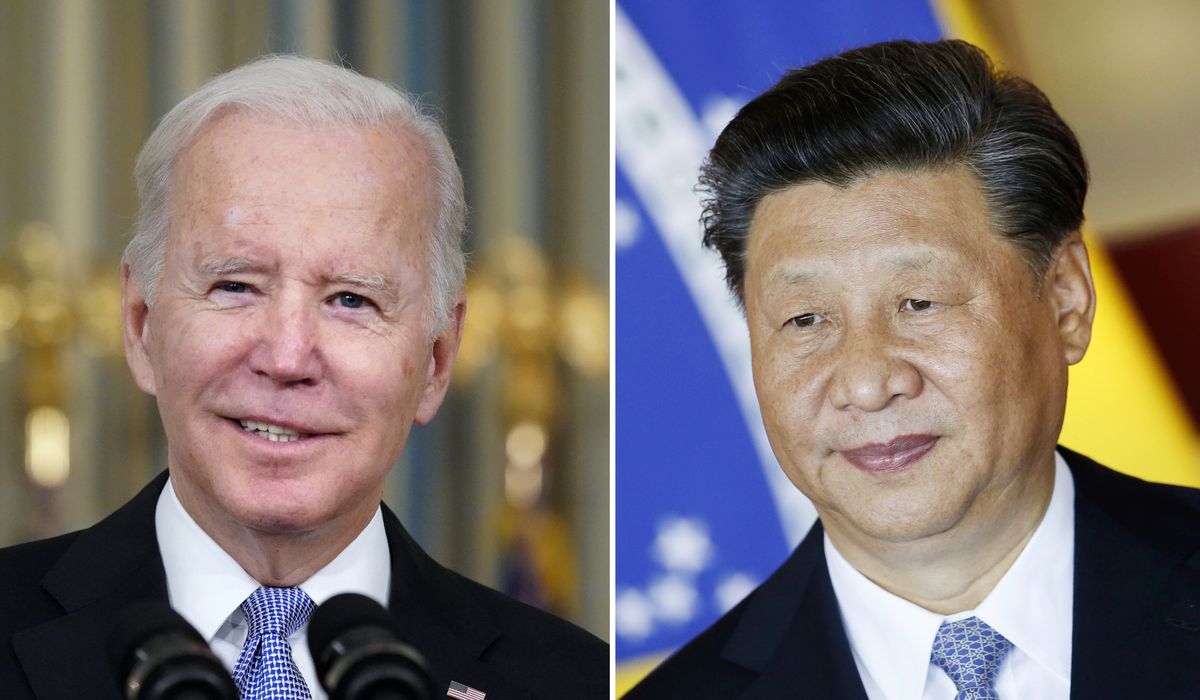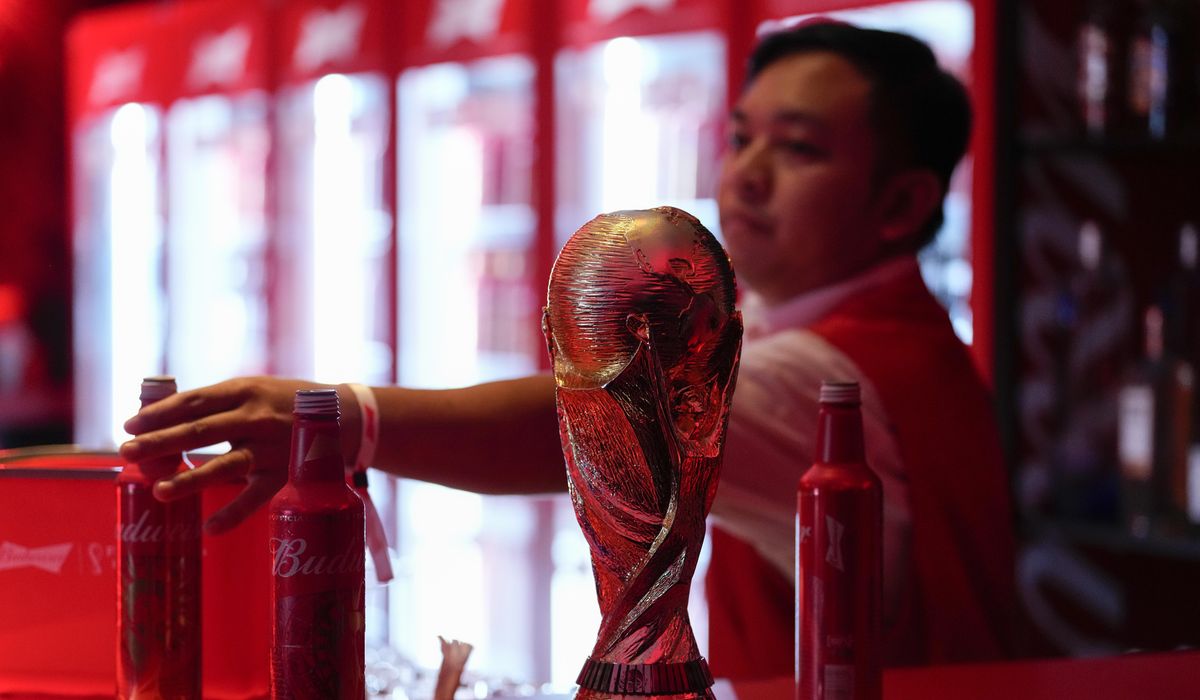NUSA DUA, Indonesia (AP) – President Biden and Chinese President Xi Jinping opened their first face-to-face meeting Monday since the U.S. president took office nearly two years ago, amid rising economic and security tensions between the two superpowers. who are fighting for global influence.
Xi and Biden greeted each other with a handshake at a luxury resort hotel in Indonesia, where they are attending a summit of the G20 major economies. U.S. officials say Biden is seeking to “build a floor” in relations between leaders — and countries — to identify areas of potential cooperation and avoid miscalculations between nuclear powers on issues of disagreement.
Both men came to the long-awaited meeting with a strengthened political position at home. Democrats triumphantly retained control of the US Senate with a chance to increase their ranks by one in a runoff election in Georgia next month, while Xi won a third five-year term in October at the Communist Party’s National Congress, a break with tradition.
“We have very few misunderstandings,” Biden told reporters in Phnom Penh, Cambodia, on Sunday, where he was attending a meeting of Southeast Asian nations before leaving for Indonesia. “We just have to figure out where the red lines are and … what’s most important to each of us in the next two years.”
Biden added: “His circumstances have changed, to put it bluntly, at home.” The president said about his situation: “I know that I will be stronger.”
White House aides have repeatedly sought to play down any notion of conflict between the two countries and have emphasized that they believe the two countries can work in tandem on common issues such as climate change and health security.
But relations between the US and China have become even more strained under successive US administrations, as controversies over the economy, trade, human rights and security have come to the fore.
As president, Biden has repeatedly accused China of human rights abuses against the Uyghur people and other ethnic minorities, repression of pro-democracy activists in Hong Kong, coercive trade practices, military provocations against self-ruled Taiwan and disagreements over Russia’s prosecution of its war against Ukraine. Chinese officials have largely refrained from publicly criticizing Russia’s war, although Beijing has avoided direct support such as arms shipments.
Taiwan has become one of the most contentious issues between Washington and Beijing. Biden has repeatedly said during his presidency that the US would defend the island, which China hopes to eventually reunify, in the event of a Beijing-led invasion. But administration officials have emphasized each time that the US “One China” policy has not changed. The policy recognizes the government in Beijing, allowing informal relations and defense ties with Taipei, and its position of “strategic ambiguity” over whether it would respond militarily if the island is attacked.
Tensions flared further when House Speaker Nancy Pelosi, D-Calif., visited Taiwan in August, prompting China to retaliate with military exercises and ballistic missile launches into nearby waters.
Last month, the Biden administration also blocked the export of advanced computer chips to China, a national security move that increases US competition against Beijing. Chinese officials were quick to condemn the restrictions.
And while the two men have had five phone or video calls during Biden’s presidency, White House officials say those meetings cannot replace an opportunity for Biden to meet and assess Xi in person. The task has become even more important since Xi consolidated his grip on power through the party congress, as lower-level Chinese officials are unable or unwilling to stand up for their leader.
When asked about the proposed meeting, Chinese Foreign Ministry spokesman Zhao Lijian said at a news briefing last week that China was committed to “win-win cooperation with the United States,” while expressing Beijing’s concern over the U.S. stance on Taiwan.
“The US should stop obscuring, smoothing and distorting the one-China principle, and abide by the basic norms in international relations, including respecting the sovereignty and territorial integrity of other countries and non-interference in the internal affairs of other countries,” he said.
Xi has stayed close to home throughout the global COVID-19 pandemic, where he has pursued a “zero COVID-19” policy that has led to massive shutdowns that have rocked global supply chains.
He made his first trip outside China since the pandemic began in September, stopping in Kazakhstan and then Uzbekistan to attend the eight-nation Shanghai Cooperation Organization with Putin and other leaders of the Central Asian Security Group.
White House officials and their Chinese counterparts have spent weeks coordinating all the details of the meeting, which is being held at Xi’s hotel with interpreters providing simultaneous translation through headsets.
US officials were anxious to see how Xi would approach the Biden meeting after cementing his position as the nation’s undisputed leader, saying they would wait to assess whether that made him more or less likely to seek areas of cooperation with the US
Biden and Xi brought small delegations to the talks, with US officials expecting Xi to bring newly promoted government officials to the meeting and expressing hope that it could lead to more substantial interactions down the road.
Before meeting with Xi, Biden first held a meeting with Indonesian President Joko Widodo, who is hosting the G-20 summit, to announce a series of new development initiatives for the archipelago nation, including investments in climate, security and education.
Many of Biden’s talks and engagements during his three-nation tour, which took him to Egypt and Cambodia before he landed on the island of Bali on Sunday, were designed to prepare him for his meeting with Xi and send a signal that the U.S. will compete in areas where Xi also worked to expand his country’s influence.
In Phnom Penh, Biden sought to assert US influence and commitment in a region where China has also made inroads and where many countries feel allied with Beijing. He also sought input on what he should raise with Xi in talks with the leaders of Japan, South Korea and Australia.
The two men have a history dating back to Biden’s time as vice president, when he went on a mission to get to know Xi, then vice president of China, on trips that brought Xi to Washington and Biden via a trip to the Tibetan Plateau. The US president emphasized that he knows Xi Jinping well and wants to use this one-on-one meeting to better understand where the two stand.
Biden liked to insert references to his conversations with Xi during his trips to the US in the run-up to the midterm elections, using the Chinese leader’s preference for autocratic rule to make his own case for voters why democracy should prevail.
The president’s view was somewhat vindicated on the world stage when White House aides said several world leaders reached out to Biden during his visit to Cambodia, where he met with Asian allies, to reassure them of the US’s commitment to the region in the face of China’s assertive action — to tell him that they had been closely following the results of the midterm elections and that the results were a triumph for democracy.
US officials said no joint communiqué was expected after the meeting with Xi and downplayed expectations of policy breakthroughs. The White House said Biden plans to hold a press conference after his meeting with Xi.
—
AP writer Josh Boak in Washington contributed.






